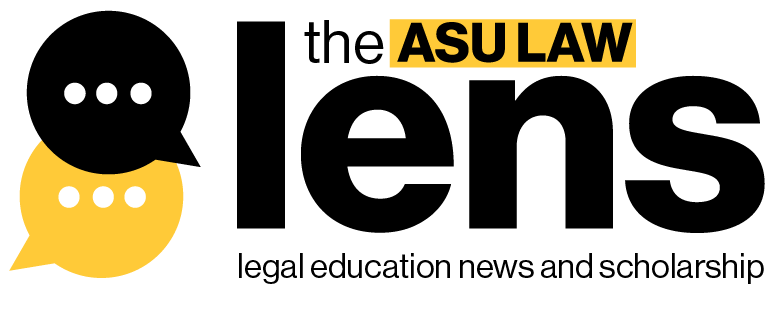
Emerging health tech and the law, ‘like peanut butter and jelly’
The last decade has been a whirlwind of technological breakthroughs in health care, from artificial intelligence and 3D printing to gene editing. At the Sandra Day O’Connor College of Law at Arizona State University, two professors recognized the need for students to understand the variety of emerging technologies disrupting health care and the ethical and legal challenges behind them. This led to the creation of the Health Technologies, Innovation and the Law course.
Gary Marchant, regents and foundation professor of law and faculty director for the Center for Law, Science and Innovation, and Guy Cardineau, emeritus professor, developed the course in 2013 and have taught it every year since. Available to JD students, this course is part of the Law, Science and Technology Certificate.
New technologies continue to emerge and become integral to health care. When the course began, students examined technologies such as electronic health records and diagnostics, which were new at the time. Today, these technologies are standard in health care, while newer advancements like gene editing and 3D printing are now the focus. The course helps students keep up with these changes, benefiting both professionally and personally.
“Technology plays a larger role in health care every year, and this course helps prepare health law attorneys to address these important new technologies,” Marchant said. “Often students realize these new health technologies are not only critical for their future legal careers but also for the health of themselves and their families.”
The two-hour course is divided into two parts: the first half focuses on emerging health technologies and the second covers legal issues related to them. As technology evolves, Marchant anticipates a rise in legal practices specializing in health tech.
“AI will be at the center of this transformation, as it is quickly becoming central to both legal practice and medical practice,” he said. “Many other emerging medical technologies will integrate with AI, making it key to understanding the legal and medical aspects of these innovations in health care.”
Marchant believes law schools and health care institutions must collaborate to address the challenges posed by emerging health technologies.
“There is a tremendous opportunity for law schools and health care institutions to collaborate on the implementation of emerging technologies in health care,” he explained. “Law schools understand the legal principles and precedents for these technologies, while health care institutions have hands-on experience using them. The two go together like peanut butter and jelly.”
ASU Law further enhances its focus on health and technology through the work of the Center for Law, Science and Innovation. One of the first centers in the nation dedicated to using law to drive innovation for societal good, it plays a key role in addressing the legal and regulatory challenges that arise from rapid advancements in fields like bioethics, human-technology relationships and more.
For information on the health and wellbeing area of expertise, visit law.asu.edu/health-and-wellbeing
Written by crystal jimenez
Stephen Breyer, associate justice of the U.S. Supreme Court from 1994 to 2022, has been named the 2026 recipient of the O’Connor Justice Prize.
Related links
For the media
Legal studies research
Legal experts list
Media resources
Faculty directory
Staff directory
For all press and media inquiries, please contact: Kourtney Kelley, Assistant Director of Communications
[email protected]
480-965-6197
-
Newsroom homepage
-
LENS Newsletter
-
ASU Law Talks
